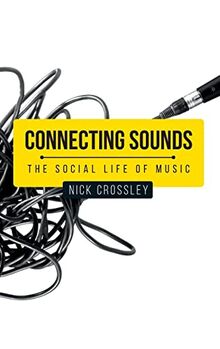
Nick Crossley argues that music is a form of social interaction, interwoven in the fabric of society and in constant interplay with its other threads. Musical interactions are often also economic interactions, for example, and sometimes political interactions. They can be forms of identity work, for both individuals and collectives, contributing to the reproduction or bridging of social divisions. As such music both shapes and is shaped by the wider network of relations and interactions making up our societies at their local, national and global levels.
Successive chapters of the book track and explore these interplays, in each case combining a critical consideration of existing literature with the development of an original, 'relational' approach to music sociology. The result is a grand sociological vision of music that captures not only music's context but 'the music itself'. The book extends the project begun in Crossley's earlier work on punk and post-punk 'music worlds', revisiting this concept and the network ideas that underpin it, whilst broadening its focus through a consideration of wider music forms and the meanings that music has for its participants.
Connecting sounds: The social life of music is essential reading for social scientists, musicologists and cultural scholars more widely. Its bold claims will appeal to researchers and postgraduates, whilst its clear style and comprehensive coverage make it an accessible and invaluable entry point for undergraduates.